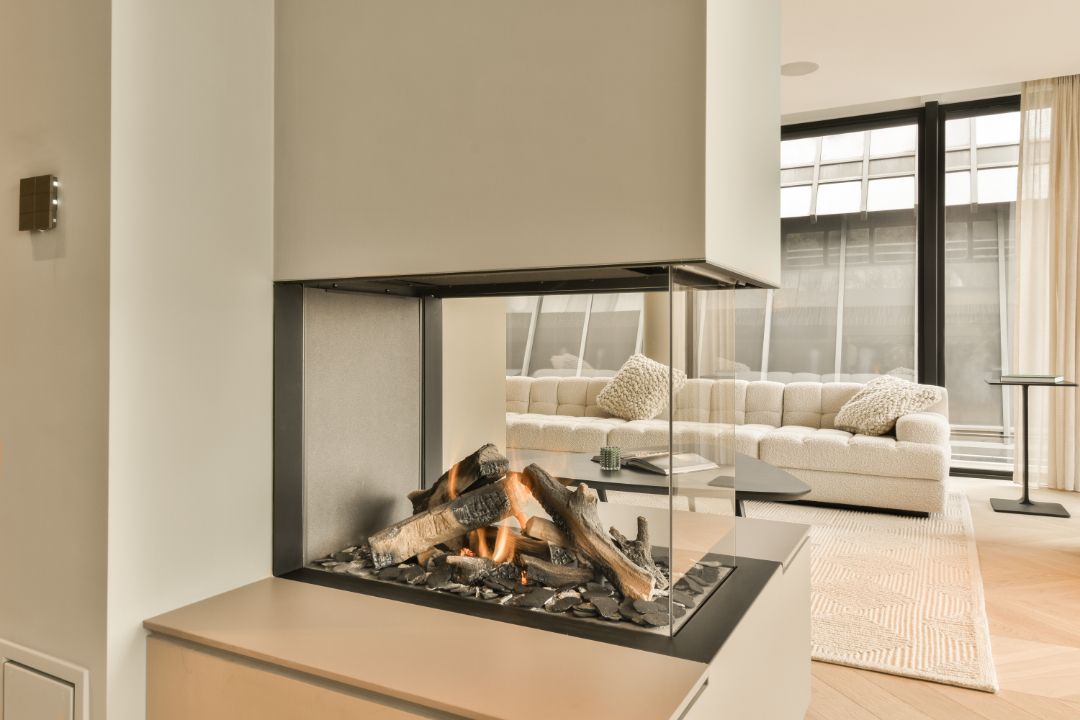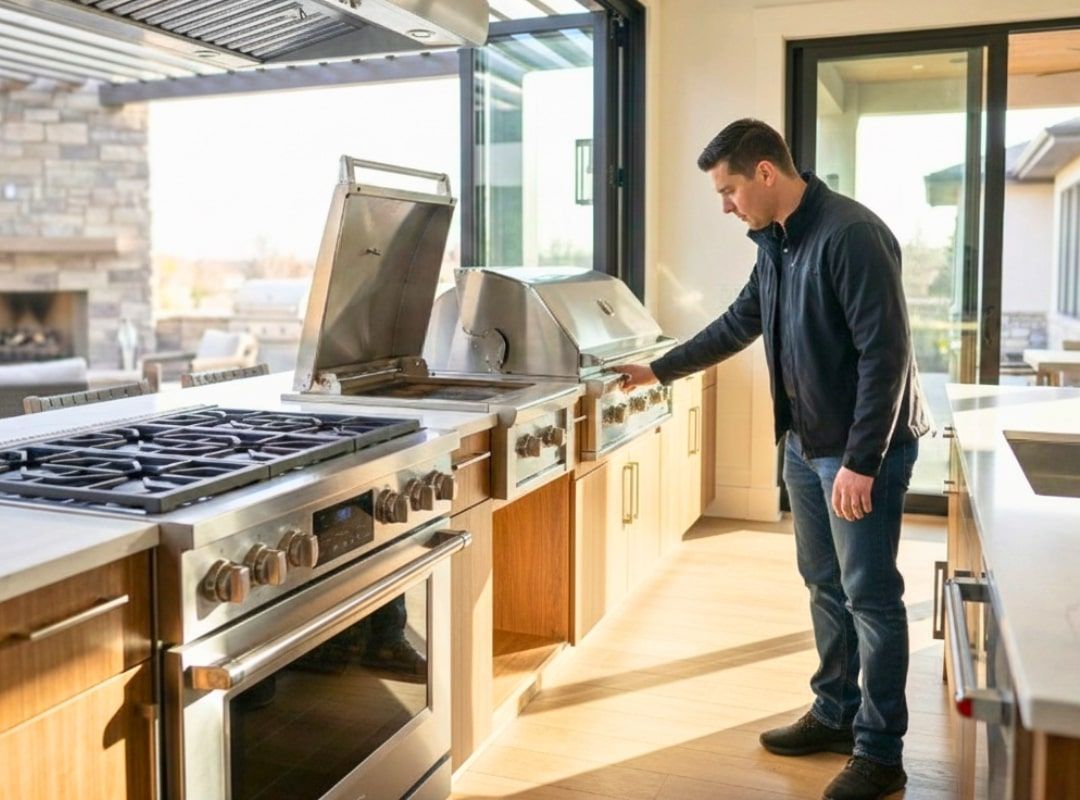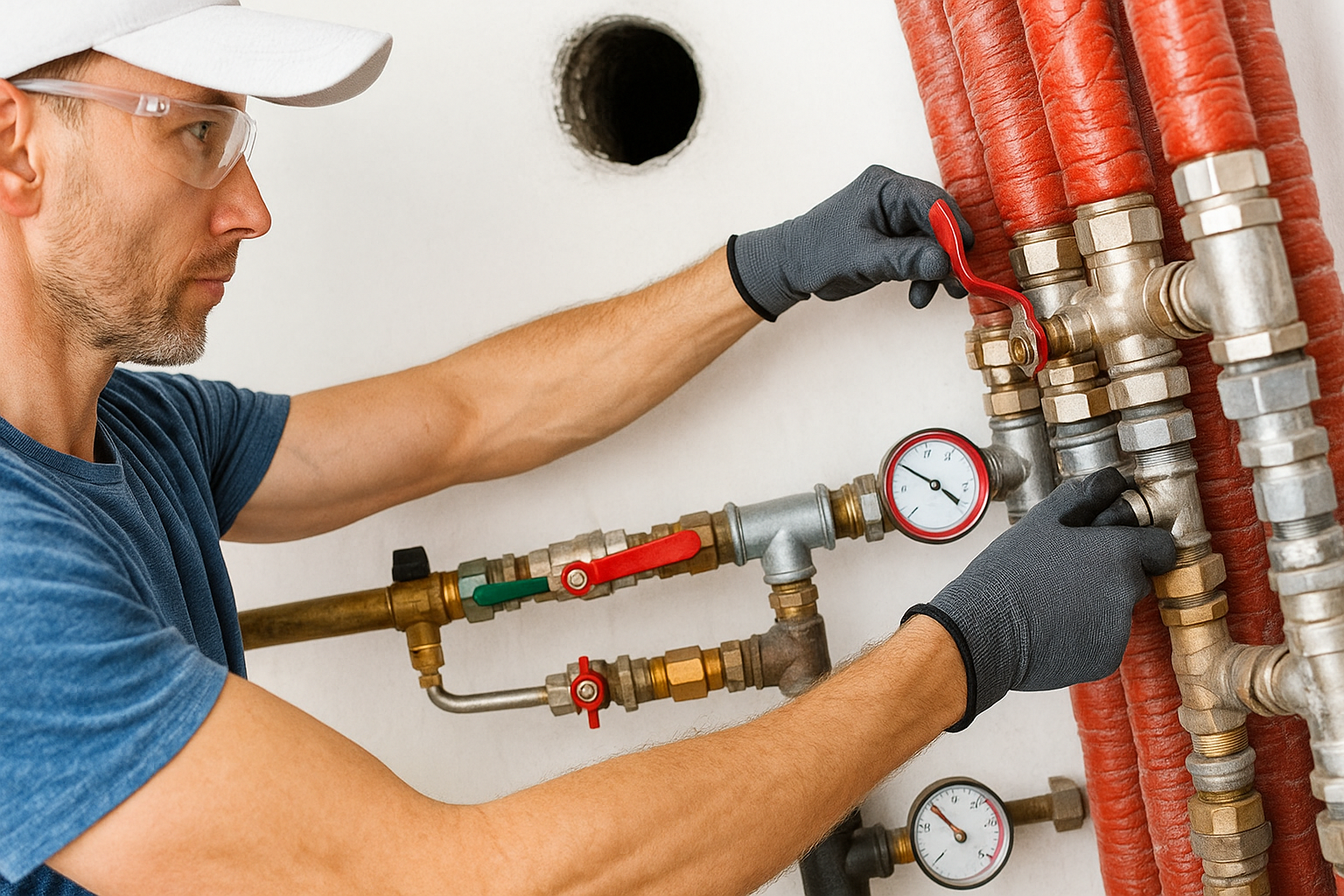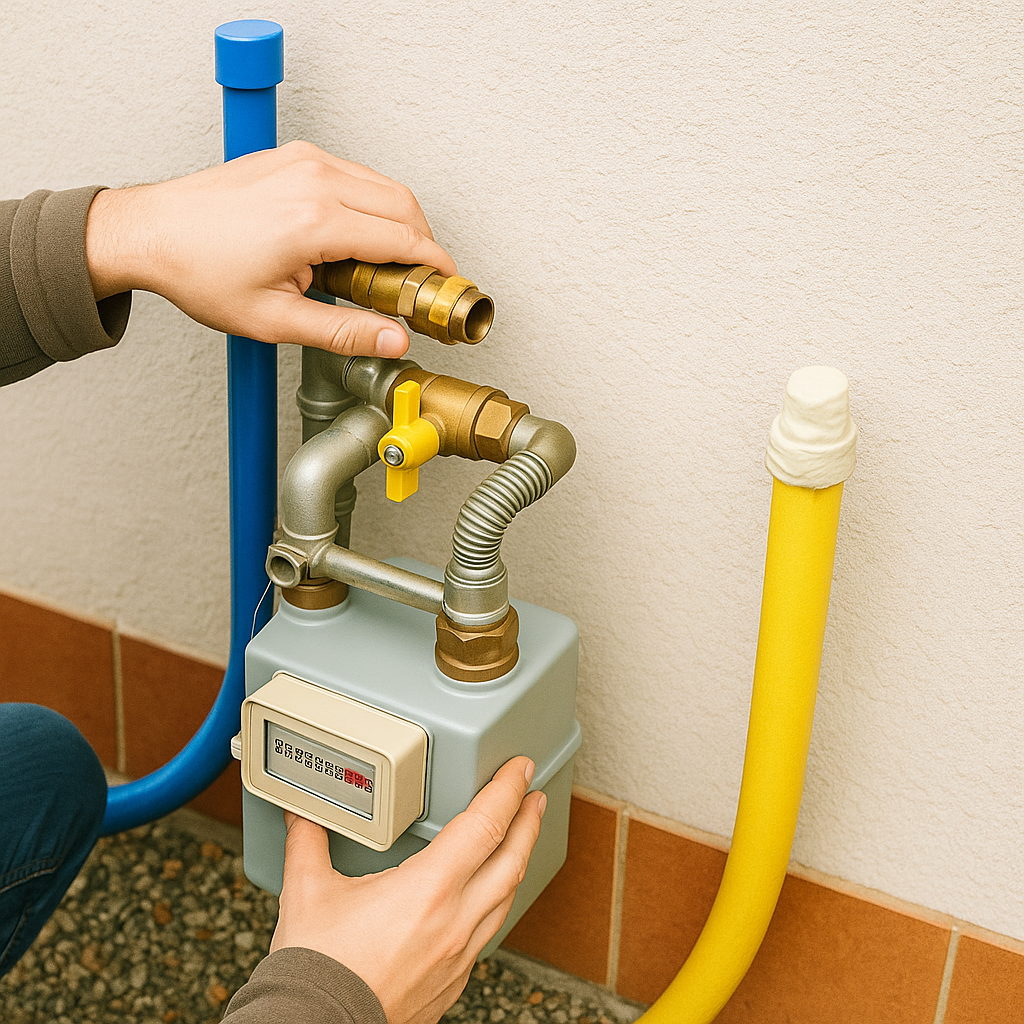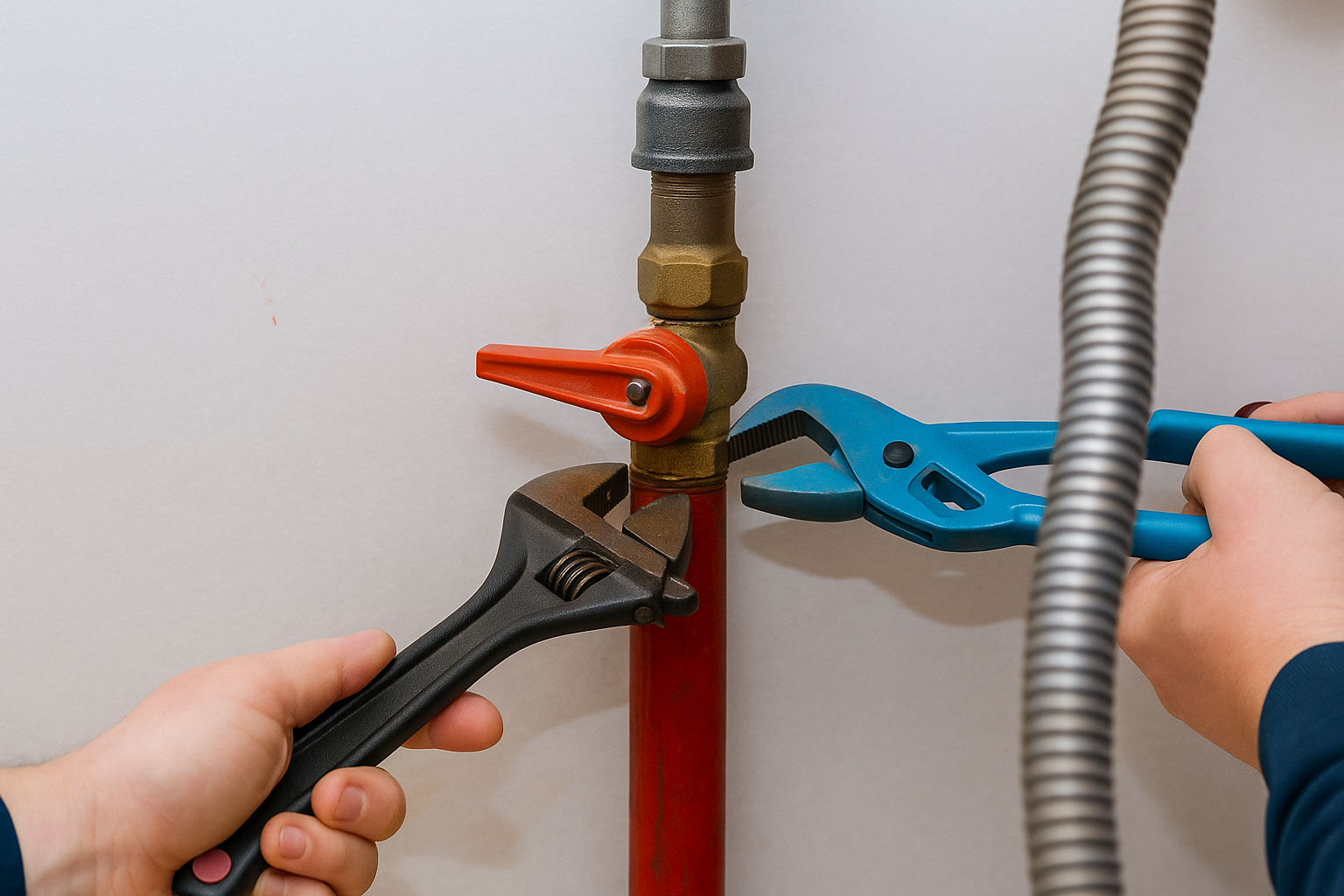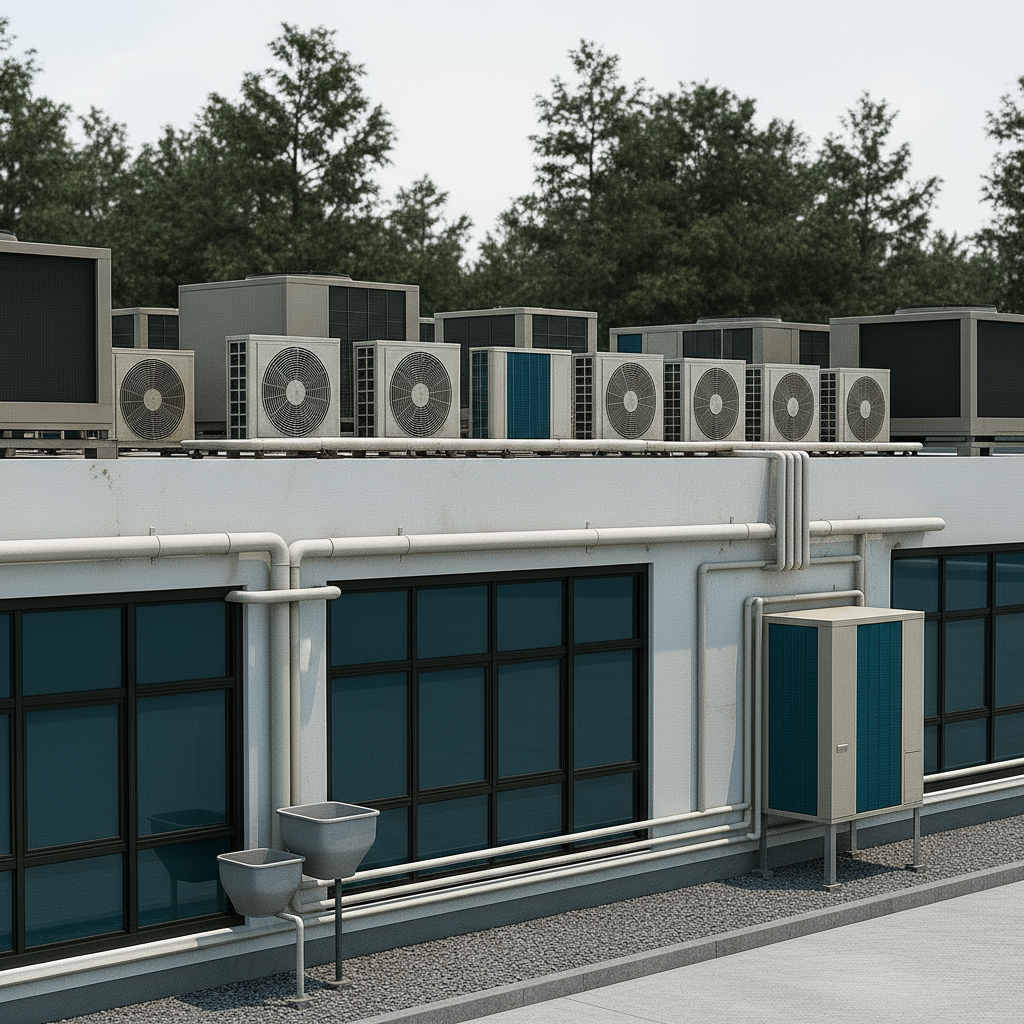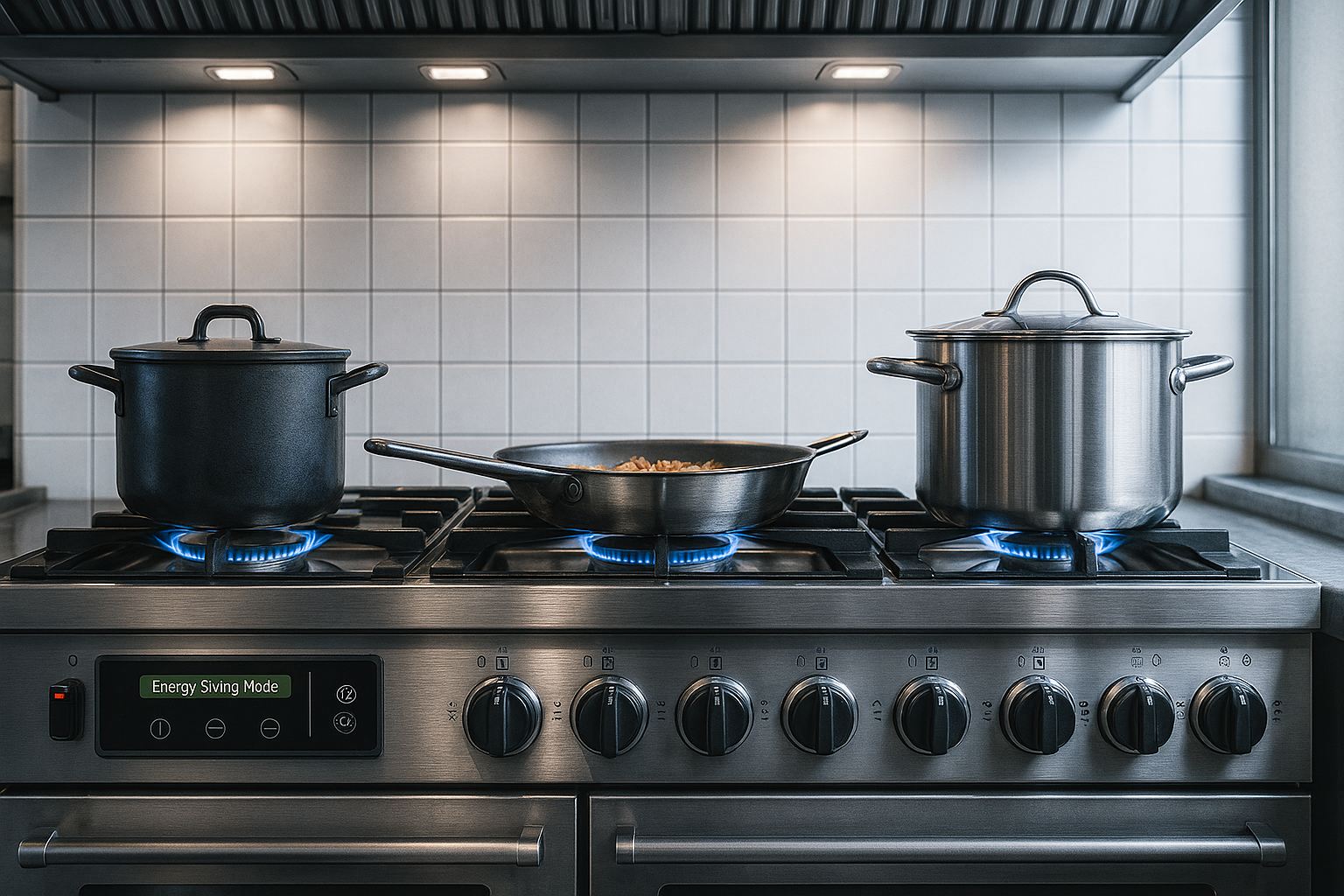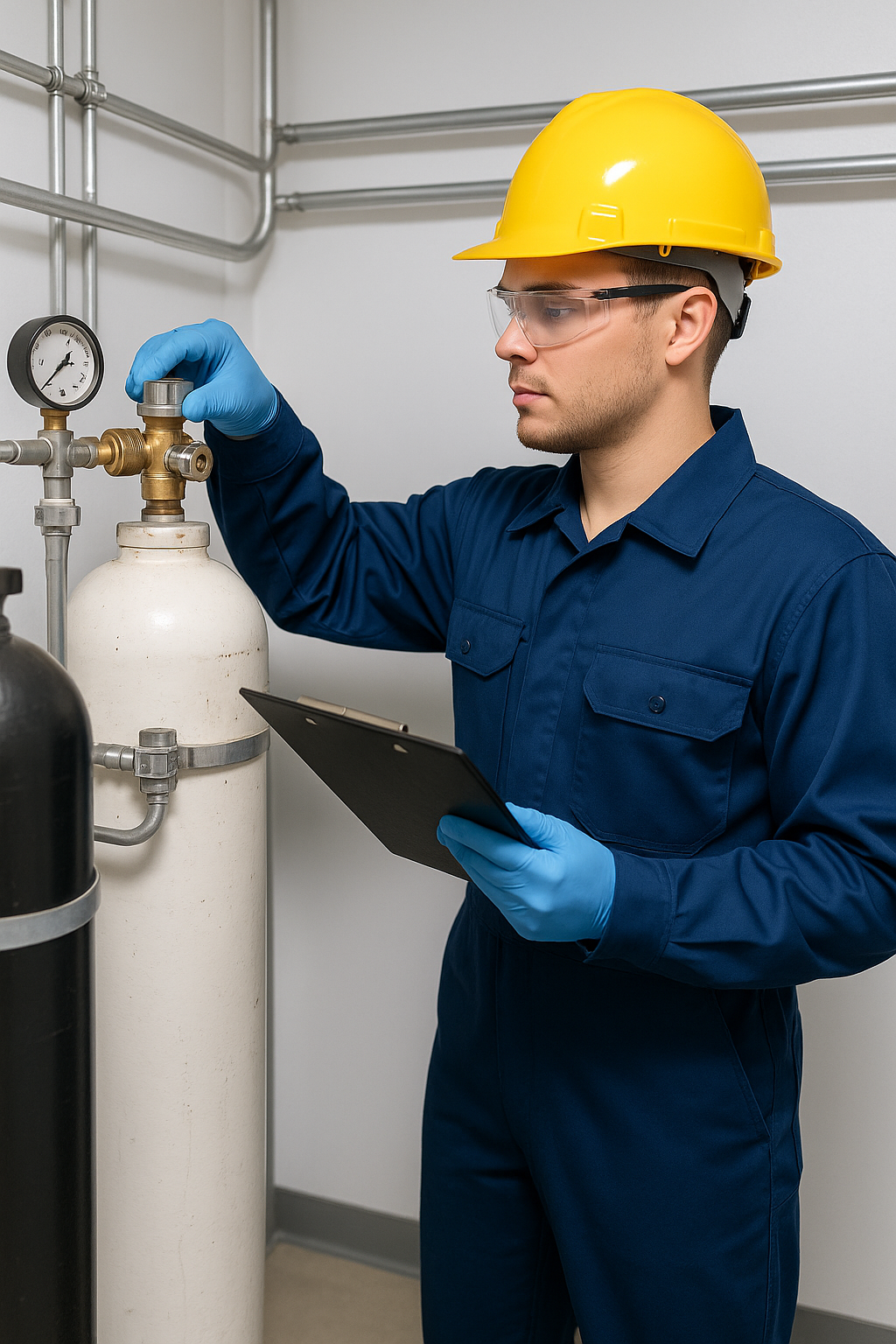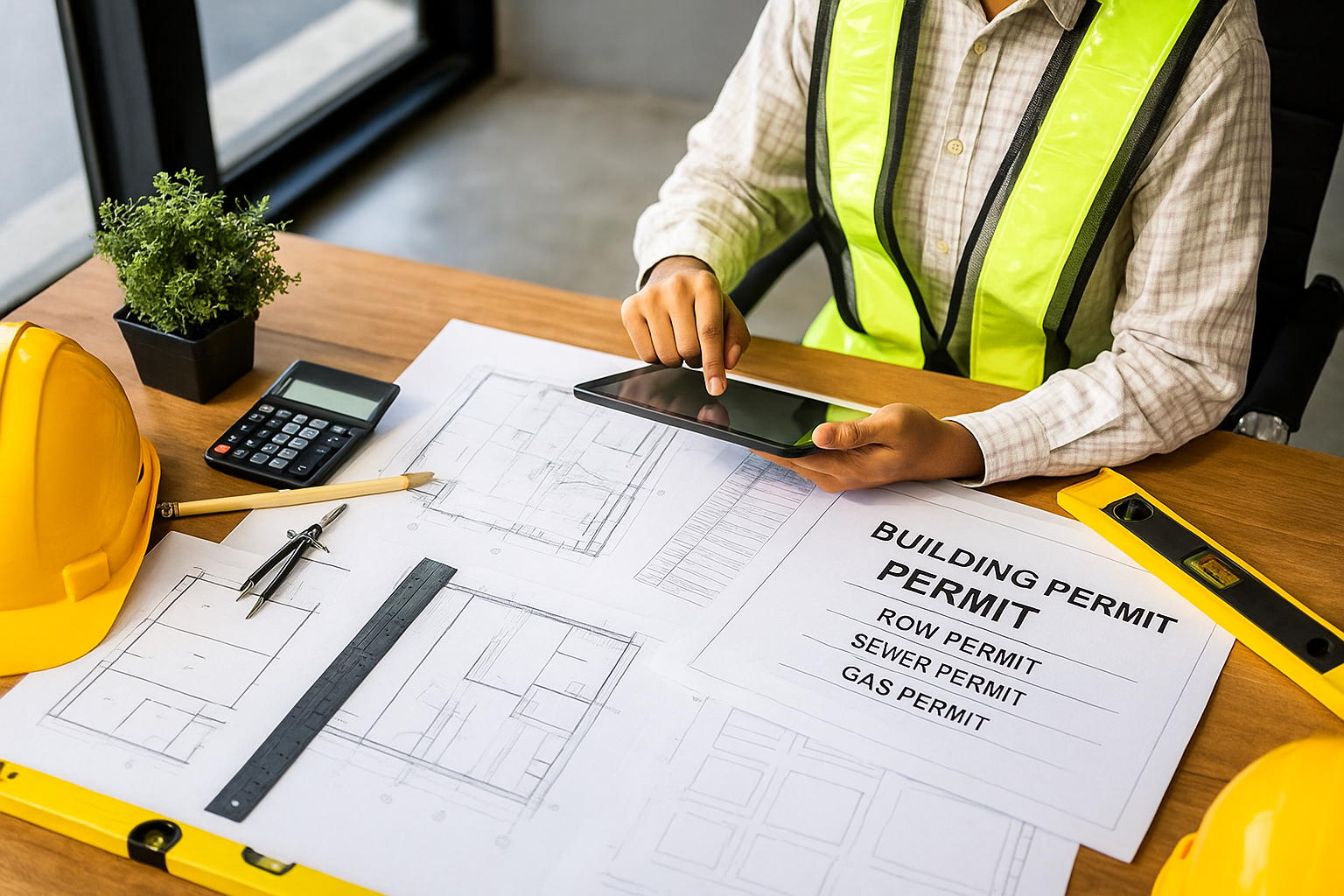Can I Add a Gas Line to an Existing Home?
TLDR;
Yes, you can add a gas line to an existing home, but only if the project follows building codes, safety regulations, and is handled by a licensed gas professional. The process involves assessing your home’s current gas system, securing permits, planning the installation, and completing professional inspections to ensure safety and compliance.
Why Homeowners Add a Gas Line to an Existing Home
Many homeowners choose to add or extend a gas line to improve energy efficiency, upgrade appliances, or expand living space. Whether it’s for a kitchen remodel, a new gas line for deck, an outdoor grill, or a standby generator, gas remains one of the most efficient and reliable energy sources for homes.
Common reasons for adding a gas line:
- Installing a gas stove or cooktop during a remodel
- Adding a gas fireplace or outdoor fire pit
- Powering a standby generator or pool heater
- Upgrading from electric to gas water heating
- Adding gas service to a detached garage or workshop
Natural gas is popular because it delivers:
- Lower energy costs compared to electric systems
- Steady heating performance even during power outages
- A clean-burning and dependable energy source
Sometimes, adding a gas line may not be practical. Homes far from utility gas mains or those already equipped with a robust propane setup might not benefit from conversion.
Legal and Code Compliance in Virginia
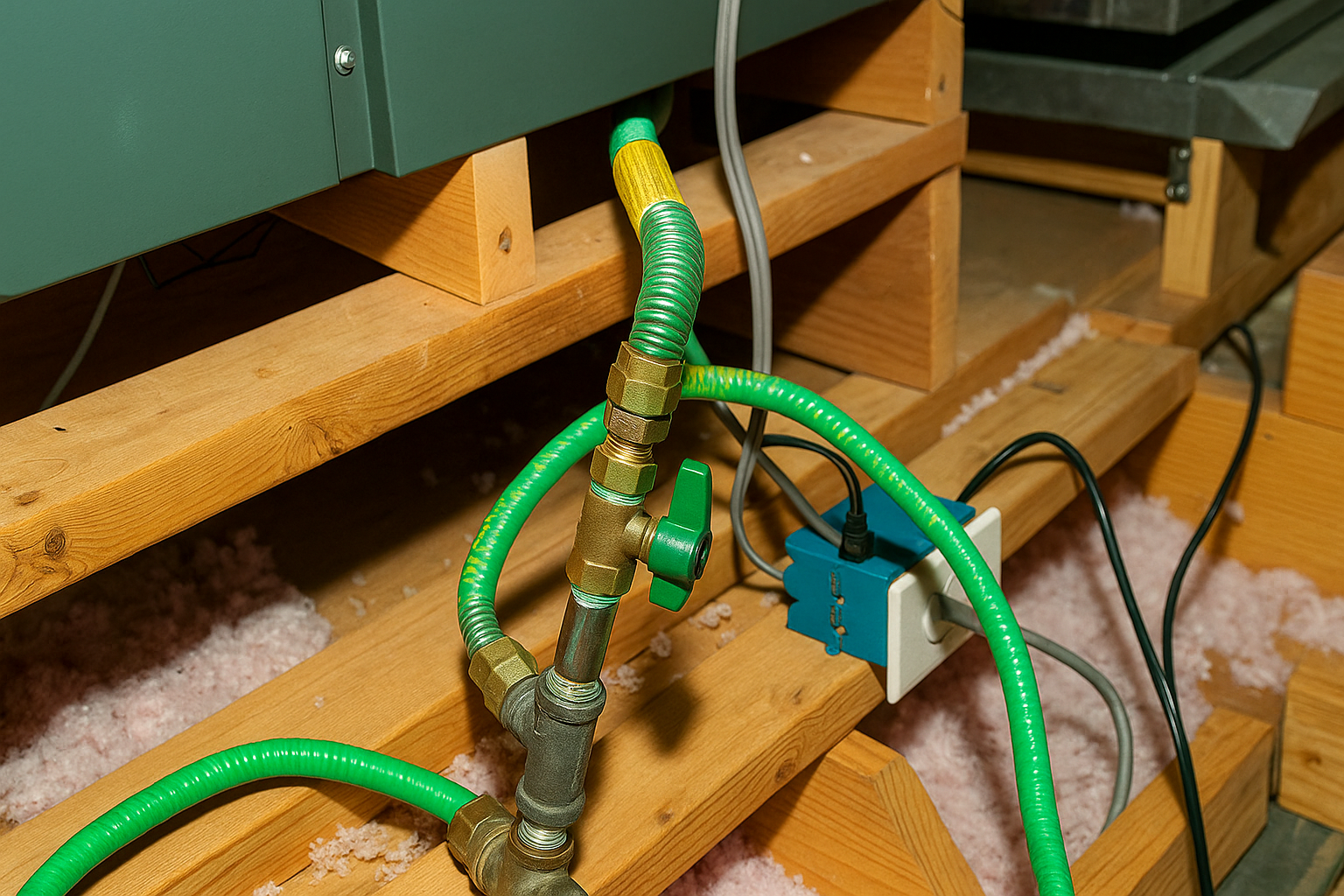
Adding a gas line to an existing home is legal in Virginia when performed under permit by a licensed contractor. The work must comply with local codes and utility safety requirements.
Key requirements include:
- A building permit for
residential gas line installation
- Work completed by a licensed gas fitter or plumbing contractor
- Final inspection by a city or county building official
Virginia homeowners often work with regulated utilities like Columbia Gas of Virginia or Washington Gas. These providers maintain strict safety standards for all gas connections and upgrades.
Licensed contractors understand Virginia’s building code, including pipe sizing rules, load calculations, and proper material selection. They handle all documentation and ensure inspection approval before activating service.
Assessing Your Existing Home for Gas Line Installation
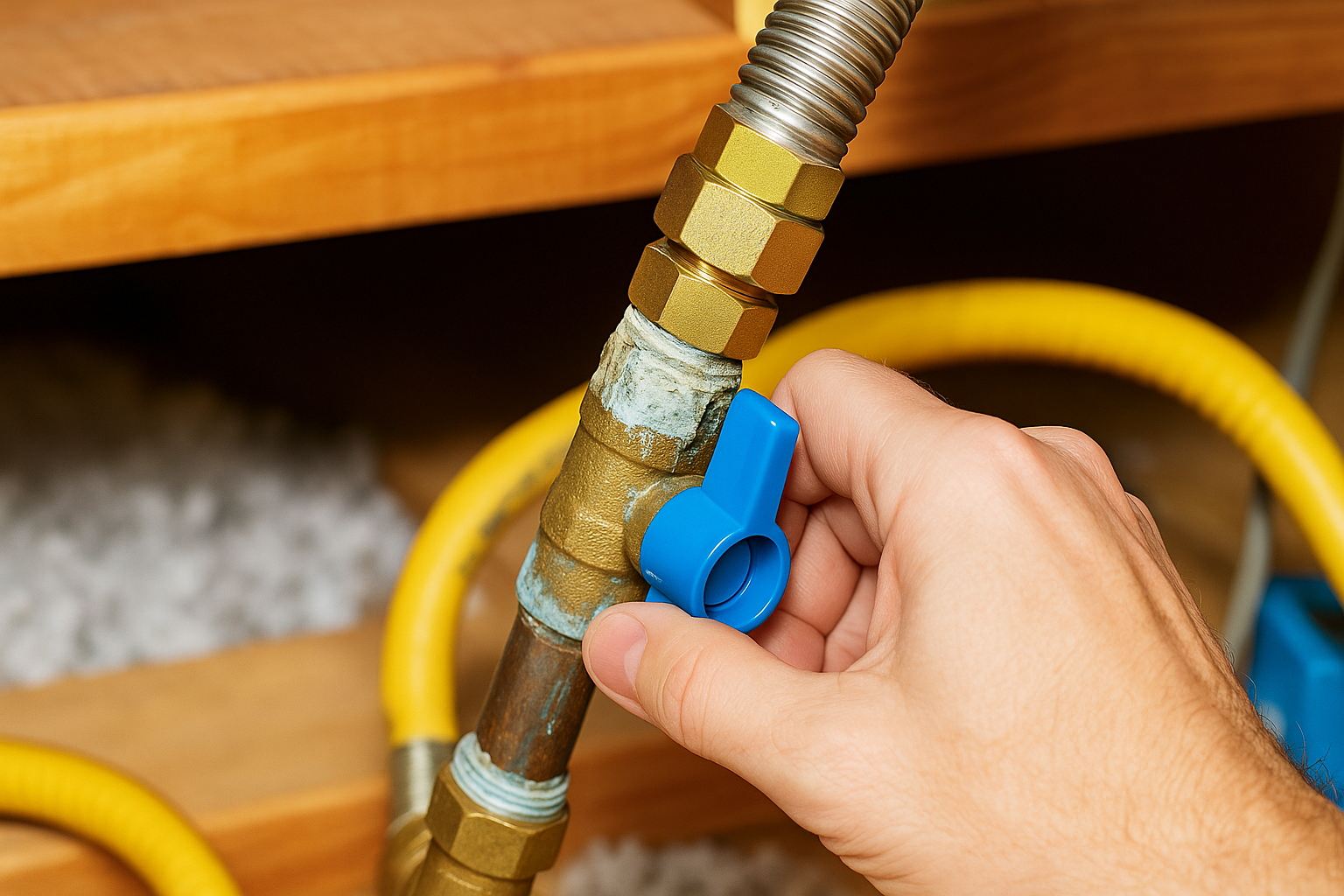
Before starting any work, a professional will evaluate your current gas supply system. This helps determine if the service line and meter can handle the additional load.
The assessment covers:
- Gas meter capacity: Is it large enough for new appliances?
- Pressure level: Can it maintain stable flow to all devices?
- Pipe routing: How can new lines reach target areas with minimal disruption?
- Structural access: Are crawl spaces, attics, or concrete floors limiting options?
The contractor also performs a BTU load calculation to confirm the existing line can safely support additional appliances. If not, an upgrade to the service line or meter may be required.
Common piping materials include:
- Black iron pipe: Durable and commonly used indoors
- CSST (Corrugated Stainless Steel Tubing): Flexible and ideal for retrofits
- Copper tubing: Occasionally used for propane applications
Hidden costs may arise when walls, slabs, or outdoor surfaces require cutting or trenching. A professional inspection ensures the safest and most cost-effective route.
Step-by-Step Process of Adding a Gas Line
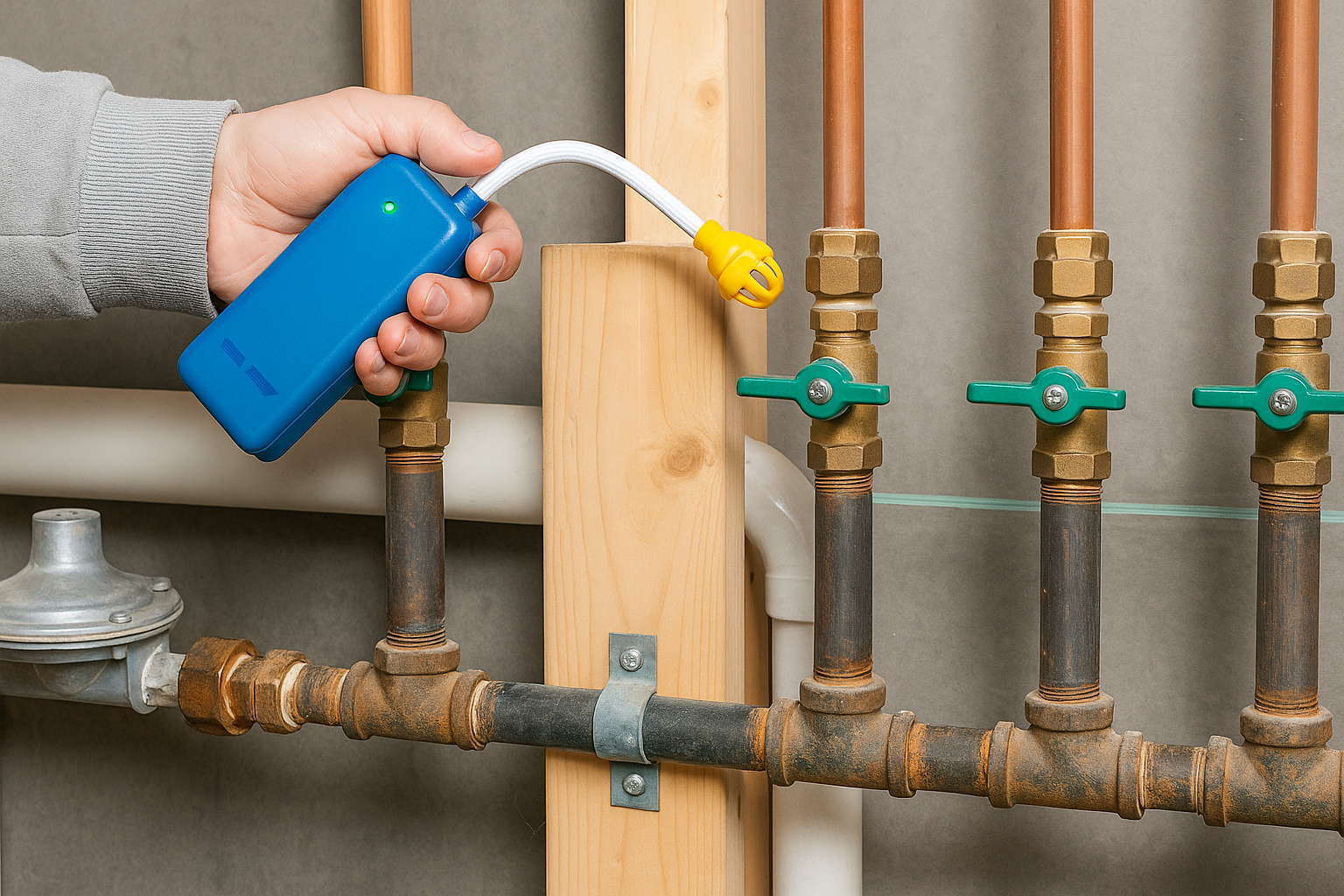
- Planning and Permit Application
A licensed professional prepares detailed plans and applies for the required permit. Approval ensures the design meets all code standards. - Gas Load and Routing Design
The installer calculates total appliance demand and selects proper pipe sizes. Routing avoids electrical wiring, HVAC ducts, and structural framing. - Excavation or Trenching (if outside)
For exterior installations, trenches are dug to connect the main gas line to the home or new appliance area. - Pipe Installation
Piping is cut, fitted, and joined using approved methods. Supports and hangers secure the system in place to prevent stress or leaks. - Connection to the Meter or Branch Line
The new line ties into the existing gas branch or directly to the meter. Each joint and fitting is tested for leaks. - Testing and Inspection
The contractor pressurizes the line and inspects for leaks. The local authority or inspector verifies compliance before the system is activated. - Appliance Connection and Commissioning
After inspection approval, appliances are connected, tested, and calibrated for safe operation.
Cost Drivers and Installation Timeline
While costs vary widely, several factors influence the total project expense.
- Length of the gas line run
- Number of appliances being served
- Complexity of the route (walls, floors, distance to meter)
- Required permits and inspection fees
- Material type (CSST vs black iron pipe)
Typical projects involve:
- Pre-approval and permits: 1–2 weeks
- Installation work: 1–3 days depending on scope
- Inspection and approval: 1–2 additional days
Professional planning reduces delays and helps coordinate with utility schedules.
Safety and Risk Considerations
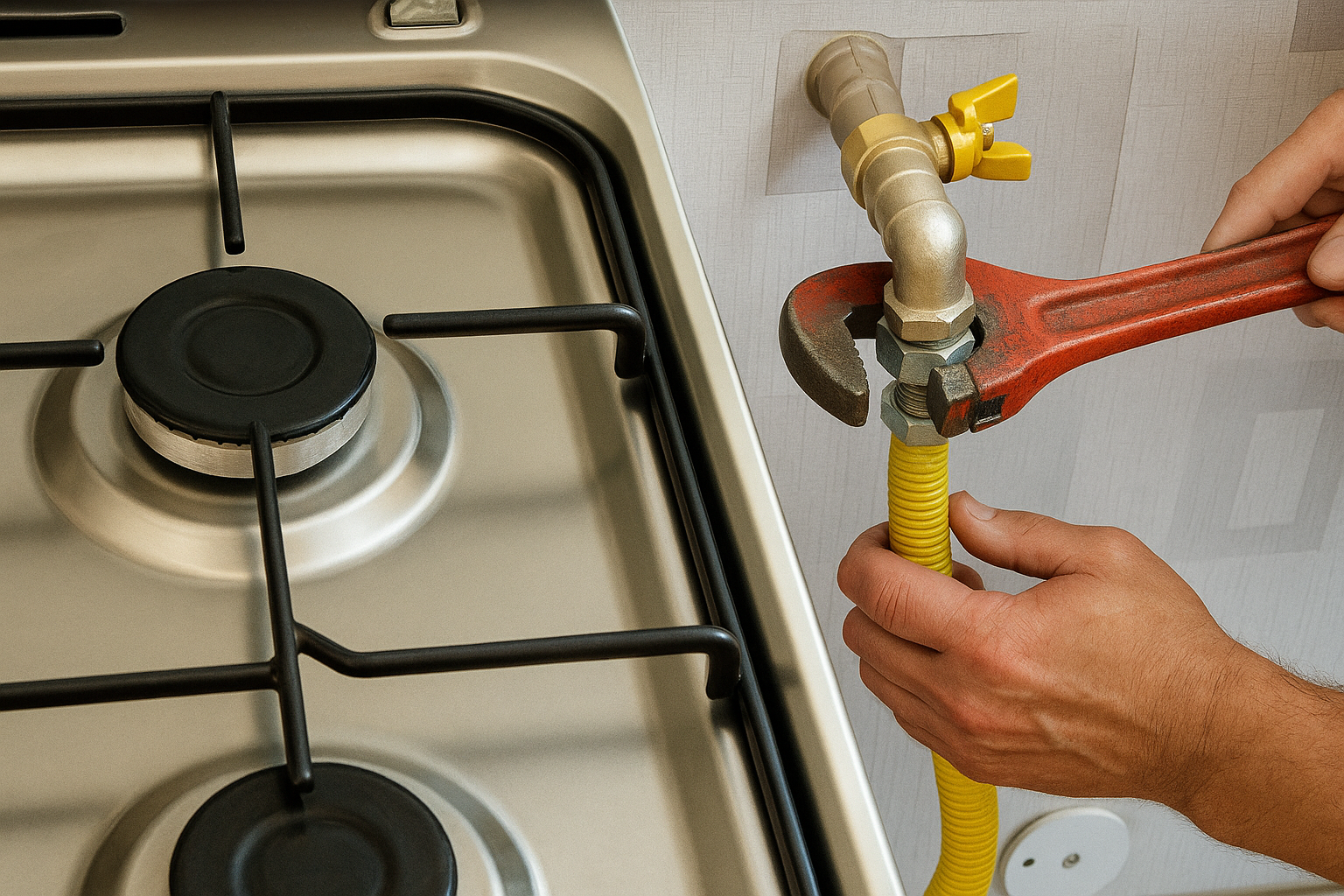
Working with gas involves serious risks if performed incorrectly. A leak or faulty connection can lead to fire, explosion, or carbon monoxide exposure.
Warning signs to watch for:
- Rotten egg odor (sulfur smell)
- Hissing or whistling near fittings
- Sudden increase in gas bills
- Appliance pilot lights that go out frequently
Avoid do-it-yourself gas work. Only licensed professionals have the training and equipment to pressure-test and certify systems safely.
After installation, homeowners should:
- Schedule annual gas inspections
- Check connections and bonding of CSST tubing
- Keep areas around gas lines clear of clutter and moisture
- Contact a professional immediately if a gas smell or leak is suspected
Frequently Asked Questions for Virginia Homeowners
Can I share a gas line with a neighbor?
No. Every property must have its own metered service. Sharing lines violates code and poses safety risks.
Will adding a gas line increase my home’s value?
Yes. Homes with efficient natural gas systems are often more attractive to buyers due to lower energy costs and modern appliance options.
How do I find a reliable gas contractor in Virginia?
Look for a licensed, insured professional with experience in residential gas installations. Ask for proof of certification, references, and recent inspection approvals.
What if my home uses propane but I want natural gas?
A conversion is possible, but it requires coordination with a utility provider and potentially new piping, regulators, and appliance adjustments.
Will my utility upgrade supply if I add more appliances?
If your meter or service pressure is insufficient, your gas provider can evaluate and upgrade equipment as needed. Your contractor can submit the request on your behalf.
Choosing the Right Contractor for Gas Line Installation

Selecting the right professional determines the project’s success and safety. NOVA Gas recommends homeowners follow this checklist:
- Verify licensing through the Virginia Department of Professional and Occupational Regulation
- Confirm proof of insurance and liability coverage
- Ask if the contractor handles permits and inspections
- Review warranty terms for materials and workmanship
- Request a written estimate detailing scope and materials
- Ensure post-installation testing and cleanup are included
Reliable contractors will always explain each step, provide safety documentation, and communicate clearly about inspection timelines.
Gas Line Extension for Home Appliances
Adding new appliances like stoves, fireplaces, or dryers often requires extending existing branch lines. Professionals must:
- Calculate BTU requirements of each appliance
- Confirm total load within safe limits
- Choose correct pipe size and pressure ratings
- Test for leaks before connecting appliances
NOVA Gas advises homeowners to plan appliance upgrades together. Coordinating installations can reduce future labor and permit costs.
Upgrading an Existing Home Gas System
Older homes might need updates before adding new gas lines. Common upgrade tasks include:
- Replacing outdated fittings or corroded black iron pipes
- Adding proper shutoff valves for new appliances
- Installing bonding straps for CSST to prevent electrical arcing
- Adjusting regulators for stable pressure levels
Regular maintenance improves safety and performance. A properly upgraded gas system lasts decades and supports expansion with minimal risk.
Gas Line Safety and Maintenance Tips
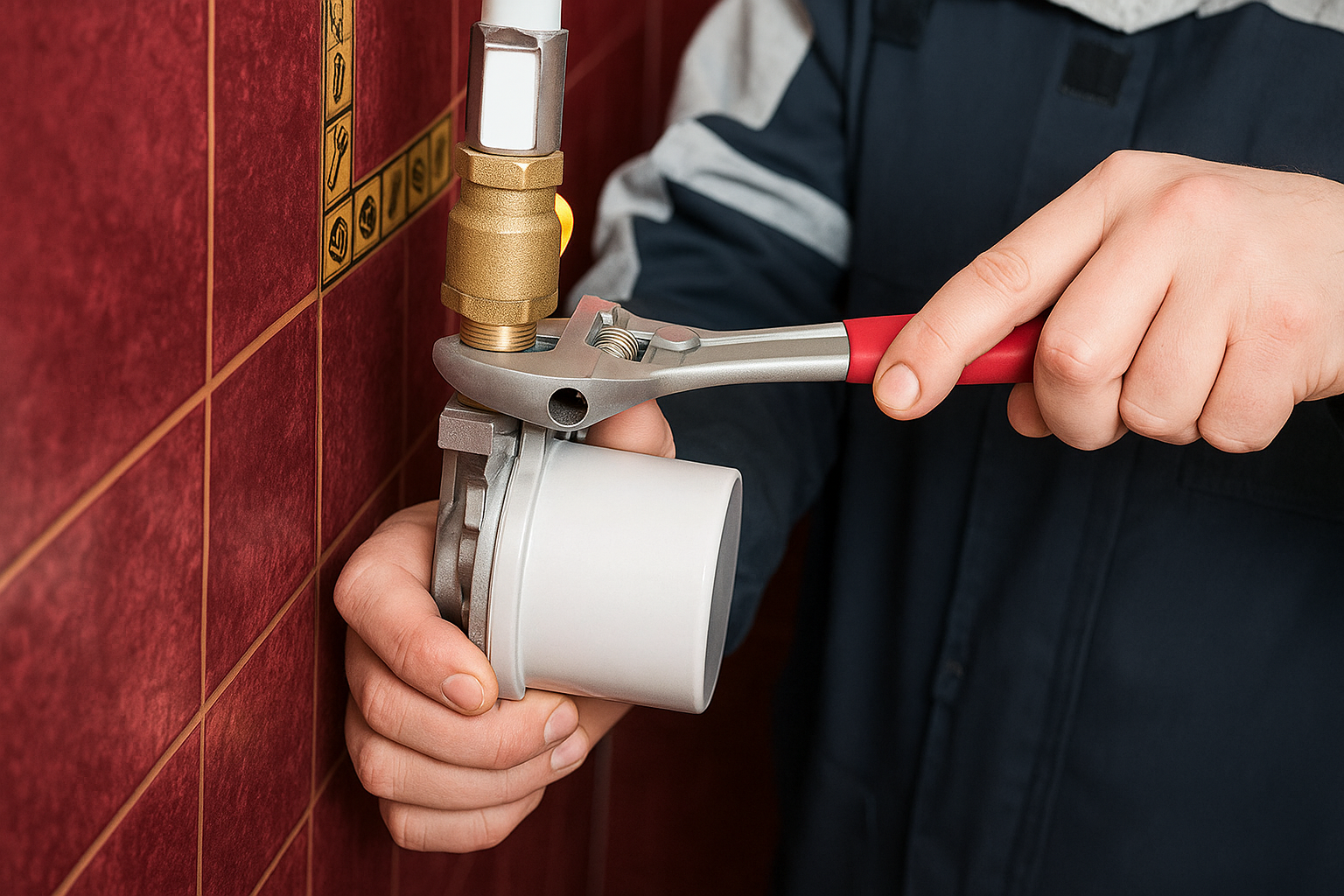
Gas systems require ongoing attention to stay safe. NOVA Gas recommends homeowners follow simple guidelines:
- Schedule professional inspections every 12 months
- Keep appliance vents unobstructed
- Install carbon monoxide detectors in sleeping areas
- Avoid moving or altering gas appliances without professional help
- Mark underground gas lines before digging outdoors
A proactive
maintenance plan extends system life and prevents emergencies.
Final Thoughts on Adding a Gas Line to an Existing Home
You can safely add a gas line to an existing home when the work follows code, uses quality materials, and is performed by licensed experts. Every home is different, so a detailed assessment and proper permitting are essential.
NOVA Gas helps Virginia homeowners design safe, efficient gas systems that meet code and deliver lasting value. Contact a licensed gas professional to review your home’s setup, calculate demand, and plan a compliant installation that fits your needs.

